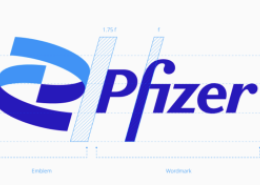Pfizer Announces Neratinib Data In HER2 Positive Breast Cancer
Results presented at CTRC-AACR San Antonio Breast Cancer Symposium (SABCS)
(BUSINESS WIRE)--Pfizer Inc. (NYSE: PFE) today announced results from studies evaluating neratinib (HKI-272), an investigational, orally administered, pan-ErbB inhibitor, in patients with human epidermal growth factor receptor-2 (HER2, also known as ErbB2) positive breast cancer at the 2009 CTRC-AACR San Antonio Breast Cancer Symposium (SABCS). Neratinib is now part of Pfizer’s expanded oncology portfolio, following the recent acquisition of Wyeth.
“Data gathered from ongoing clinical trials of neratinib, both as a monotherapy and in combination, continue to support its evaluation in HER2 positive metastatic breast cancer,” said Maria Koehler MD, PhD, Vice President, Women’s Cancers Strategy for Pfizer Oncology. “We look forward to studying neratinib further in an effort to help seek to provide HER2 targeted therapies for patients battling this aggressive disease.”
Breast cancer of the HER2 positive type accounts for 20 to 30 percent of all breast cancers and is identified by the overexpression of the HER2 protein in tumor tissue. HER2 positive breast cancer is more aggressive than other breast cancers and has an increased likelihood of metastasizing.
Neratinib Shows Activity in Phase 1/2 Study
This ongoing, Phase 1/2, open-label, two-part study evaluates the safety and efficacy of neratinib in combination with weekly paclitaxel in patients with solid tumors and HER2 positive metastatic breast cancer (Poster #5081). Part 1 of the study showed that a standard oral dose of 240 mg of neratinib daily can be given with 80 mg/m2 of paclitaxel weekly to patients with solid tumors. In part 2, only patients with HER2 positive metastatic breast cancer (newly diagnosed or following up to three recurrences) received therapy to evaluate the overall response rate (ORR) of this combination of neratinib and paclitaxel.
As of October 19, 2009, an ORR (including both complete and partial responses) of 69 percent (n=68) was observed, from a total of 99 patients with HER2 positive breast cancer who were evaluable for efficacy analysis in part 2 of this ongoing study. In the first-line metastatic setting of 33 patients, the ORR was 70 percent (n=23). Overall response rates observed in patients with hormone-receptor positive tumors, prior exposure to endocrine therapy, and previous taxane therapy, were 84 percent (n=46), 80 percent (n=31) and 76 percent (n=47), respectively. Median progression-free survival (PFS) for all patients with HER2 positive breast cancer was estimated at 52.1 weeks (95 percent C.I. 47.7-NE).
In part 2 of the study, preliminary clinical data indicate the combination of neratinib 240 mg and paclitaxel 80 mg/m2 was tolerable, with a similar toxicity profile to each drug given as monotherapy. The most common treatment-emergent adverse events occurring in ≥20 percent of patients included diarrhea, neutropenia, alopecia, peripheral neuropathy, leucopenia, infection (any site), anemia, rash, nausea, vomiting, fatigue, anorexia and pyrexia. Diarrhea of any grade was the most common adverse event (in 91 percent of patients), and presented as a grade 3/4 adverse event in 28 percent of patients. Diarrhea was generally observed early (median onset, three days after the first dose of neratinib; median duration, 30 days). Fifteen and 37 patients required dose reductions of neratinib and paclitaxel, respectively, because of adverse events, and a total of 49 patients discontinued the study. Most study discontinuations (39 patients) were secondary to disease progression. Three patients discontinued therapy due to adverse events (renal failure, left ventricular ejection fraction reduction, and mouth ulceration).
Phase 2 Safety Results of Neratinib Monotherapy in Patients with HER2 Positive Breast Cancer
A Phase 2 study evaluated the safety and efficacy of oral neratinib (240 mg daily) as a monotherapy in patients with advanced HER2 positive breast cancer assigned to two cohorts: those with prior trastuzumab treatment (cohort 1) and those with no prior trastuzumab treatment (cohort 2)(Poster #5096). The new analysis presented at SABCS focused on the gastrointestinal and cardiovascular safety profiles of neratinib seen in this study.
Diarrhea that developed in patients treated with single agent neratinib had early onset (median time to onset three days), but its frequency and severity decreased with time on neratinib. Neratinib-related diarrhea was managed with standard supportive therapy and dose interruptions and/or reductions. Anti-diarrheal medications for supportive therapy were used by 85 percent of patients in the study. Dose reductions to manage diarrhea were applied in 30 percent of patients in cohort 1 and in 7 percent of patients in cohort 2. One patient with prior trastuzumab therapy discontinued treatment as a result of diarrhea.
There was no statistically significant difference in PFS for patients with a maximum grade 3/4 diarrhea event versus patients with no diarrhea or a maximum grade 1/2 diarrhea event.
Vomiting, any grade, occurred in 29 percent of patients and was managed with the use of anti-emetic medications and dose modifications.
In this study, neratinib was not associated with clinically significant cardiotoxicity; no patients had congestive heart failure.
Additional Neratinib Data Presentations
Two additional neratinib studies were presented at SABCS 2009. These studies include:
- Safety of Neratinib (HKI-272) in Combination with Capecitabine in Patients with Solid Tumors: A Phase 1/2 Study (Poster #5108)
- Safety and Efficacy of Neratinib (HKI-272) in Combination with Vinorelbine in ErbB2+ Metastatic Breast Cancer (Poster #5095)
About Neratinib
Neratinib is an investigational, orally administered, irreversible inhibitor of the ErbB1 (EGFR), ErbB2 (HER2) and ErbB4 (HER4) kinases. Neratinib permanently inactivates the ErbB kinases. Inhibited HER2 activities include downstream signal transduction events and cell cycle regulatory pathways, such as the cell division cycle, ultimately resulting in decreased cell proliferation.
ErbB2 belongs to the ErbB family of receptor tyrosine kinases, which has been implicated in a variety of human cancers, including cancers of the breast. HER2 positive breast cancer is identified by the overexpression of human epidermal growth factor receptor-2 (HER2) protein in tumor tissue and results in an increased rate of cell proliferation.
About Pfizer Oncology
Pfizer Oncology is committed to the discovery, investigation and development of innovative treatment options to improve the outlook for cancer patients worldwide. Our strong pipeline, one of the most robust in the industry, is studied with precise focus on identifying and translating the best scientific breakthroughs into clinical application for patients across a wide range of cancers, including breast, lung, prostate, sarcoma, melanoma, and various hematologic cancers. Pfizer Oncology has more than 25 biologics and small molecules in clinical development and more than 200 clinical trials underway.
By working collaboratively with academic institutions, individual researchers, cooperative research groups, governments, and licensing partners, Pfizer Oncology strives to cure or control cancer with breakthrough medicines, to deliver the right drug for the right patient at the right time.
For more information please visit www.Pfizer.com.
Pfizer Inc.: Working together for a healthier world™
At Pfizer, we apply science and our global resources to improve health and well-being at every stage of life. We strive to set the standard for quality, safety and value in the discovery, development and manufacturing of medicines for people and animals. Our diversified global health care portfolio includes human and animal biologic and small molecule medicines and vaccines, as well as nutritional products and many of the world’s best-known consumer products. Every day, Pfizer colleagues work across developed and emerging markets to advance wellness, prevention, treatments and cures that challenge the most feared diseases of our time. Consistent with our responsibility as the world’s leading biopharmaceutical company, we also collaborate with health care providers, governments and local communities to support and expand access to reliable, affordable health care around the world. For more than 150 years, Pfizer has worked to make a difference for all who rely on us. To learn more about our commitments, please visit us at www.pfizer.com.
DISCLOSURE NOTICE: The information contained in this release is as of December 12, 2009. Pfizer assumes no obligation to update any forward-looking statements contained in this release as the result of new information or future events or developments.
This release contains forward-looking information about neratinib, a product in development, including its potential benefits as a potential treatment for patients with HER2 positive breast cancer, that involves substantial risks and uncertainties. Such risks and uncertainties include, among other things, the uncertainties inherent in research and development; decisions by regulatory authorities regarding whether and when to approve any drug applications that may be filed for neratinib as well as their decisions regarding labeling and other matters that could affect the availability or commercial potential of neratinib; and competitive developments.
A further description of risks and uncertainties can be found in Pfizer’s Annual Report on Form 10-K for the fiscal year ended December 31, 2008 and in its reports on Form 10-Q and Form 8-K.
Media:
Chris Loder
M: 347-453-8199
O: 212-733-7897
or
Investor:
Jennifer Davis
M: 347-237-7947
O: 212-733-0717








